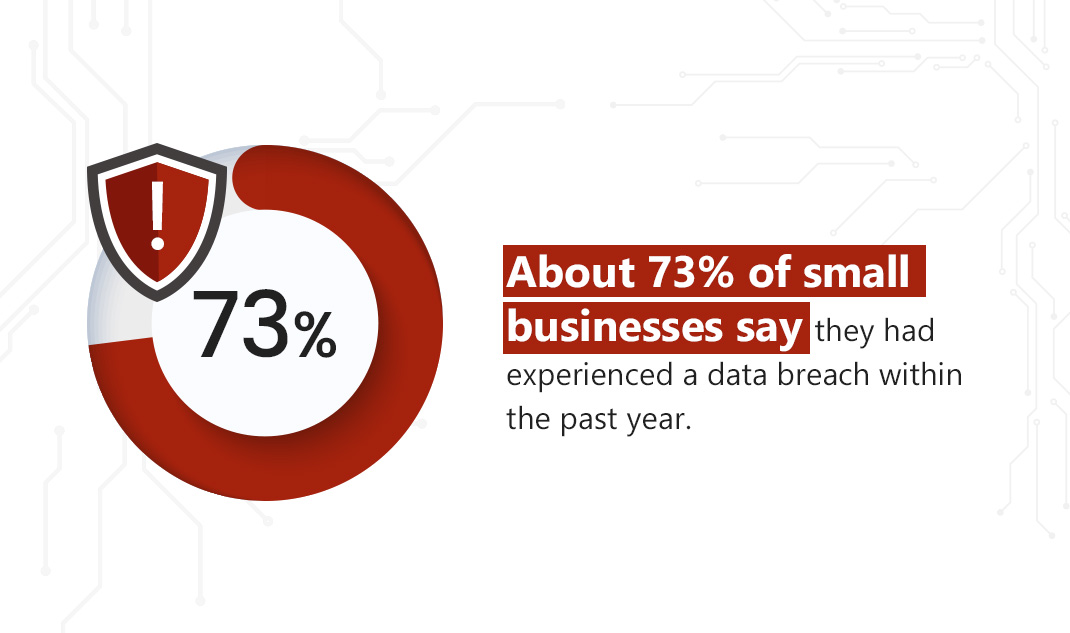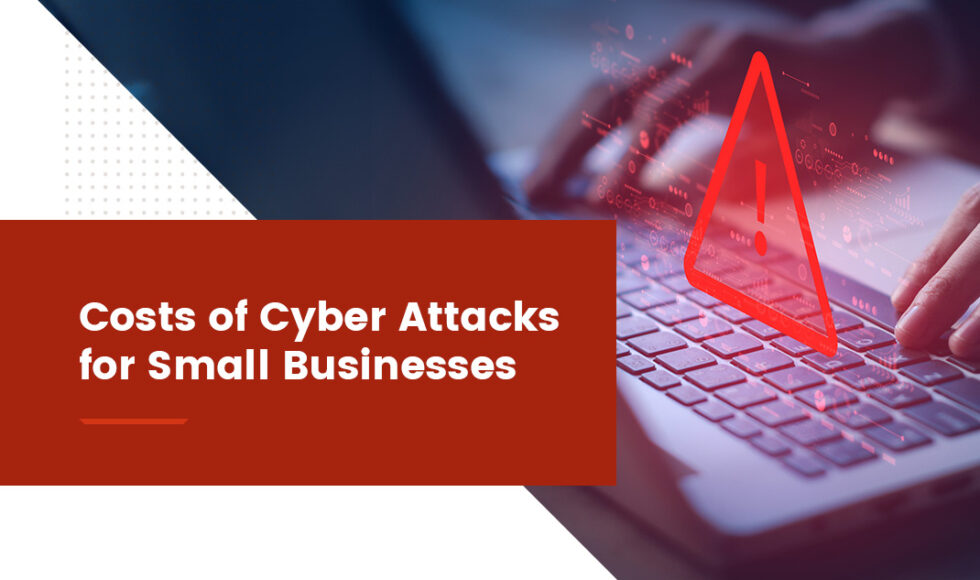The costs of cybercrime can be significant for small businesses. These threats can interrupt daily operations and lead to financial blows. In some cases, the company may have lasting damage to their reputation.
Attackers are smarter than ever before, amping up their strategies to go after a company’s private data. But, small enterprises can protect their operations despite cybersecurity challenges. A mix of proactive and reactive steps is key.
Understanding the potential costs and how to combat threats is essential to staying in business.
The Average Cost of a Cyber Attack
The type of cyber attack your company experiences can directly impact your costs. For example, at the end of 2023, the average ransomware payment was about $850,000. The average cost of a data breach for small businesses with fewer than 500 employees was $2.98 million. These losses can completely stop operations and cause companies to shut down.
Your company’s size can also be an important factor. Businesses with more employees and higher profits may have more to lose. Different industries can have higher stakes regarding cyber attacks. This is especially true for those dealing with sensitive data. Sectors like finance or healthcare that must abide by strict regulations may face greater losses.
Another factor that can influence cyber attack costs is severity. If an attacker targets your business’s critical systems or networks, the financial impacts are likely to be greater. Recovery will be more expensive after a severe attack.
Companies can benefit from insurance coverage relating to cyber security. If you have a great policy, you may have lower costs. Additionally, the longer a cyber attack goes unnoticed, the more damage the attacker can impose. Your business’s response time will play a critical role in your overall costs.
5 Reasons Why Cyber Attack Costs Are Rising
Explore some important reasons why small businesses are spending more money on cyber attacks.
1. Increased Technology Use
Growing businesses often work with systems that help them collaborate across teams. These include many interconnected networks, devices and applications.
More technology means a larger attack surface. Cybercriminals have more opportunities to exploit your systems and access sensitive business data. As you introduce more systems, you could see higher costs if a cyber attack occurs.
2. More Frequent Cyber Attacks

Cyber attacks are more and more common. About 73% of small businesses say they experienced a data breach within the past year. Protecting your systems and data is an everyday effort. There are countless cybercriminals who attempt attacks daily.
Some of the most common threats include phishing schemes, ransomware, malware, social engineering and credential theft.
Organizations should prioritize strong cybersecurity solutions. Ongoing training is also important to combat the nonstop efforts of cybercriminals. These factors contribute to higher operational expenses.
3. New Technology
Advancing technologies also play a role in growing cybersecurity challenges. For example, sophisticated solutions like artificial intelligence, machine learning and the Internet of Things can pose a threat.
When adopting new technologies, businesses must understand how they impact their cybersecurity posture. These new additions can introduce weaknesses to your infrastructure.
Proper cybersecurity training and procedures can help reduce cyber threats. Teams must address vulnerabilities to protect new technologies. This is key to lowering potential costs for a small business.
4. Compliance and Legal Costs
The regulatory frameworks for data protection are stricter for businesses today. Compliance is critical for companies operating in the healthcare sector. Organizations must align with the Health Insurance Portability and Accountability Act to protect patient data in this industry.
Meeting strict standards to combat cyber criminals from accessing private information can contribute to higher operational costs. If an attack occurs, your business could be held responsible. Failure to comply can result in legal penalties and fines. This can increase the costs of cyber attacks for your business.
5. Reputational Damage
A cyber attack also comes with many indirect losses. The cost of a data breach extends beyond spending to combat the risks. Your small business’s reputation can endure significant damage among consumers, impacting your bottom line and revenue opportunities in the long term.
Top Ways to Combat the Costs of Cyber Attacks
Taking steps to fight all types of potential cyber attacks is crucial for small business success. Explore the top ways to reduce vulnerabilities and expenses associated with cybercrime.
Cybersecurity Testing
Testing enables your business to assess its cybersecurity posture and identify areas where cybercriminals are likely to exploit.
There are several types of testing your business can benefit from implementing. These include:
- Risk assessments.
- Penetration testing.
- Security audits.
- Vulnerability testing.
- Network security testing.
- Ethical hacking.
Regular testing is essential for keeping your company’s information technology systems safe. It is also important to keep your data from getting into the wrong hands.
Educating Your Team
Human error is a leading cause of cyber breaches, so educating your team is paramount to your business’s defense. Ensure your workers are familiar with password best practices, use multi-factor authentication for logins and know how to spot phishing threats.
Regularly remind your team about the risks of cyber attacks. Share how they can protect themselves and your company’s data. Those who are well-versed in cyber threats are less likely to make costly mistakes that could compromise your operations.
Backing Up Your Data
Small businesses can effectively reduce the negative impacts related to cyber attacks by routinely backing up all essential data. Backups can make recovery significantly easier and more efficient. They help ensure your team has a copy of its data if an attack results in destroyed or lost files.
Partnering With a Trusted Cybersecurity Services Provider
The best way to protect your small business is to partner with a leading cybersecurity service provider. They can offer support and customized IT solutions. They can also enhance your defense layers by implementing the strongest security measures, such as installing a company firewall and establishing network segmentation.
With proactive cybersecurity strategies, your team can mitigate threats and improve incident response procedures for better overall protection.
Improve Network Security With Ascendant Technologies, Inc.
With growing cybersecurity threats, having a skilled network security company like Ascendant Technologies, Inc. by your side is key to protecting your IT assets and business operations. We serve small businesses in New Jersey. Our team helps optimize your systems and prevent losses that could devastate your company.
Our solutions safeguard your data with tailored IT strategies, ongoing support and expert technician assistance. We can help your business save costs and thrive despite cyber threats.
Is your small business ready to supercharge cybersecurity with managed IT services? Request a quote to get started with Ascendant today.


